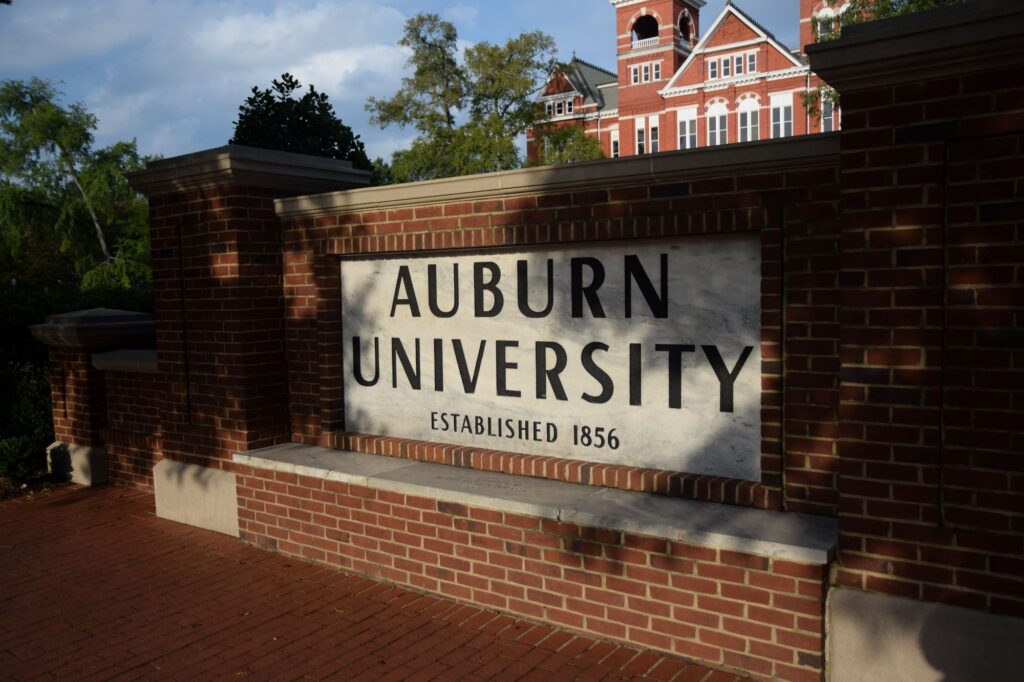alabamareflector.com – Ralph Chapoco – 2025-03-21 16:59:00
Fairhope Public Library surprised by APLS vote to rescind its funding
by Ralph Chapoco, Alabama Reflector
March 21, 2025
Fairhope Public Library staff and officials were surprised to learn that the Alabama Public Library Service had rescinded their funding on Thursday.
One library board member said she was eating lunch when one of the staff called and told her about the vote to eliminate state aid.
“I was shocked, distressed, couldn’t quite believe they would do something like that without a warning, or anything from them that said we were not in compliance,” said Randal Wright, one of the board members of the Fairhope Public Library.
GET THE MORNING HEADLINES.
SUBSCRIBE
Wright said that APLS board members as of late Friday morning had not reached out to staff or any of the board members to get their account of the situation before they decided to “simply pause our funding.”
The APLS board voted to rescind state aid for the Fairhope Public Library at the same meeting that the board also terminated Nancy Pack who had been at APLS since 2014.
Several parents complained during the public comment period that the board for the Fairhope Public Library decided to retain books in the teens section of the library over their objections, saying they belonged to the adult section.
Shortly after a public comment period ended Thursday, board member Amy Minton made a motion to eliminate funding to the library in Fairhope, with nearly all the remaining members voting in her favor except for Ronald A. Snider, who also voted against terminating Pack.
“The Fairhope library is one of the jewels of the state library system, one of the best funded in the state library system, in one of the most conservative parts of Alabama,” Snider said during the discussion.
He said the board is filled with prominent people and all of whom have been reappointed.
“To tell them that we are going to make the choice for how they do things, is far beyond the scope of this agency,” Snider said.
The library modified its policies in the fall based on the administrative code changes that were imposed in 2024 that APLS sent to local library boards and wanted them to follow. Among them is that libraries must have a policy in place to move materials from their collection that were sexually explicit or obscene to the adult section. Critics have charged the changes aim to lead to the removal of books with LGBTQ+ characters or themes.
Wright said that the library relocated five books but stands by the decision to keep the other books where they are.
“That Alabama code does say that you have to remove ‘sexually explicit’ books,” Wright said. “Well, what does sexually explicit mean to you? It might not be the same thing that it means to me. For example, for me, something that is sexually explicit is written to arouse you and to titillate. These books do not do that. These books have a brief mention about something, but the whole book is not about that.”
A message seeking comment was sent to John Wahl, chair of both the APLS board and the Alabama Republican Party, on Friday.
“Our goal is not to punish anyone but to ensure that all libraries receiving state funding adhere to the established standards that protect our children,” Wahl wrote in a statement on Thursday. “We look forward to working with Fairhope Public Library to resolve this matter so that funding can be restored as soon as possible.”
Wright said that the Fairhope Public Library sent APLS its revised policies that considered changes to the administrative code and that APLS approved them.
More than 100 parents signed a letter addressed to Wahl that expressed support for the decisions made by the board of the Fairhope Public Library.
Wahl responded to that letter in February, telling the parents that libraries are required to abide by the new administrative code while also telling them that the Fairhope Library has complied with the requirements.
“I am thankful that the Fairhope Library has now come into compliance, and I look forward to working with them as we strive to provide the best library experience possible to all Alabamians,” Wahl said in the email response.
In an interview with the media following Thursday’s APLS meeting, Wahl said that the situation involving the Fairhope Public Library was different because parents had complained to the board about their challenges, but the board did not act to relocate the books to the adult section, per the new administrative code and after they changed their local policies.
“There were a significant number of books in 2023 that we decided to accept the director’s decision on those books and the books were going to stay where they were,” Wright said. “Parents have asked us in email if we would reconsider those books that were not moved. That was a decision made in 2023. It was way before APLS changed the code and we said we would not reconsider those books.”
“There is a state code defining that terminology and they do have books in their minors’ section that are in violation of that,” Wahl said during the interview.
Obscenity was found in the state code, which includes offensive sexual conduct that is offensive or perverse.
Part of that definition includes what a “reasonable person would find that the material, taken as a whole, lacks serious literary, artistic, political or scientific value.”
Minton sent a message to the Alabama Reflector stating that the term sexually explicit is defined in the United States Code that includes sexual intercourse, excitement, as well as nudity. Those terms are further defined in Alabama state code. She also stated the term sexually explicit is defined in a section in the Alabama Code dealing with child pornography.
Critics of those support additional restrictions for library materials say that they are reading passages from books without considering the entire body of work, and that the literature portrays the lives of people in society and the issues that affect them. They are, in effect, valid information that the public should have access to.
Wright said there is a process to challenge materials in the collection, even the sections of the library where they are located, that begins with patrons completing the form and having the library director review the materials and decide if the books should be reshelved or be removed from circulation.
The director is currently on leave and the process to challenge books will begin once the director returns. A committee of two board members will then review any appeals submitted by parents if they disagree with the director’s decision and issue a recommendation to the full board.
For now, the challenge forms that were filed are awaiting the return of the library director.
“The library director has recommended that five books be moved and the rest, they are going to stay where they are, because that is where they belong,” Wright said in response to the challenges. “They are appropriate for the age and the level of readers where they are shelved.”
Clarification: The story was updated to reflect additional information about where the term sexually explicit is found in Alabama Code.
YOU MAKE OUR WORK POSSIBLE.
SUPPORT
Alabama Reflector is part of States Newsroom, a nonprofit news network supported by grants and a coalition of donors as a 501c(3) public charity. Alabama Reflector maintains editorial independence. Contact Editor Brian Lyman for questions: info@alabamareflector.com.
The post Fairhope Public Library surprised by APLS vote to rescind its funding appeared first on alabamareflector.com














































